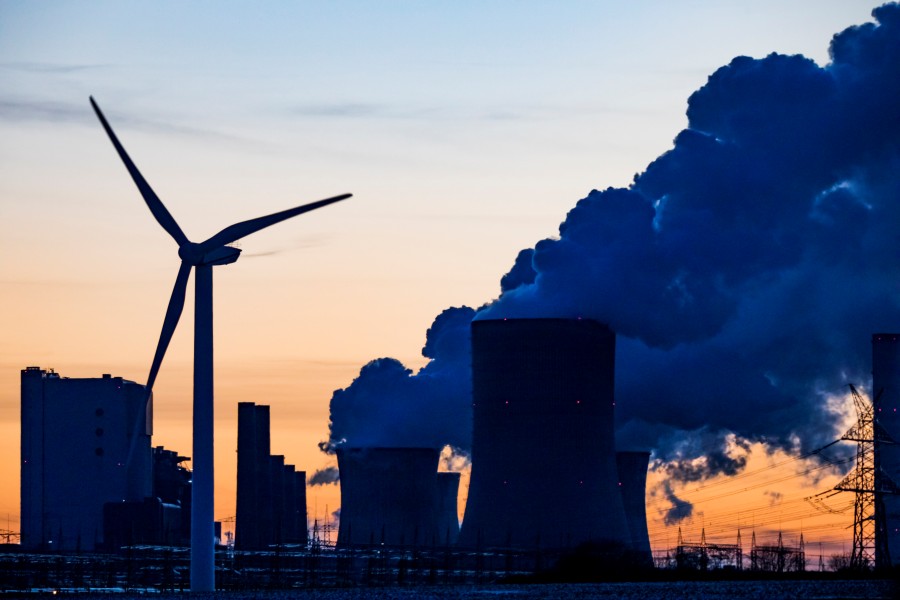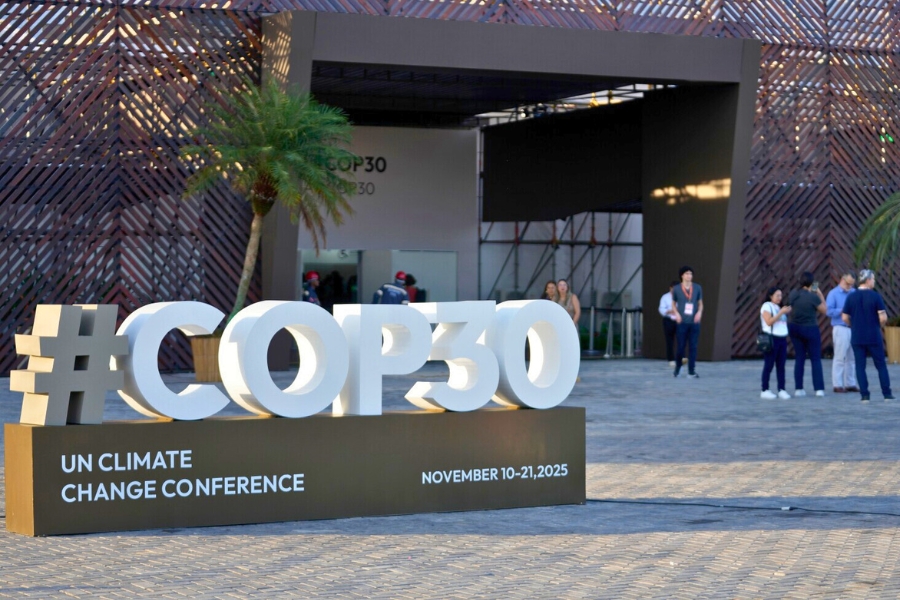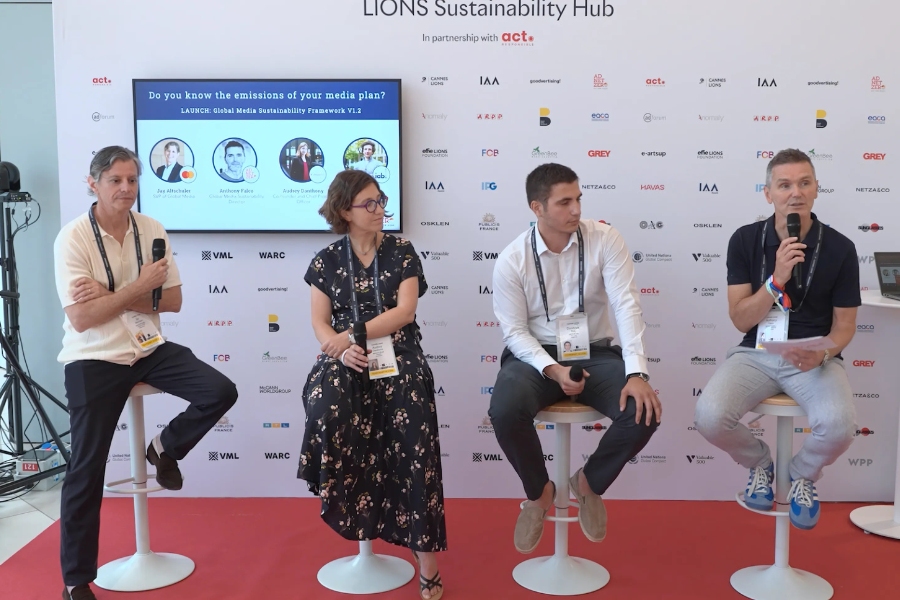France has become the first European country to ban advertisements for fossil fuels. President Emmanuel Macron’s green legislative agenda where he promised to reduce French greenhouse gas emissions by 40% by 2030 compared to 1990, was the cornerstone of his second term re-election in May.
The ban implies that there will be no longer be any promotion of petroleum-based energy products, energy from the combustion of coal, and hydrogen-containing carbons in France. Supermarkets, for example, will not run advertisements for cheap petrol. Those found breaching the rules can be fined up to €100,000, with fines potentially doubling down for repeat offenders.
The decision of likening fossil fuel ads to cigarettes or alcohol is a powerful move. However, the new law allows ads with an element of renewable energy content to continue. So, the French oil company, Total, will be able to pour massive investments into partnerships with cultural institutions like the Louvre—and also sponsor next year's Rugby World Cup, which is being hosted in France.
Greenpeace campaigner François Chartier has accused President Macron of political "greenwashing". He argues that this scaled-back version with wiggle room for fossil firms is “not a law that is going to bring about change.”
Greenpeace France has also criticised the law saying it “falls short”. Greenpeace France tweeted after the announcement.
“You will read everywhere that advertising for fossil fuels is now prohibited, but that’s not true!”
Elsewhere in Europe, Amsterdam has banned ads for fossil fuels, air travel, and foreign holidays. Pursuing similar strategies is the city of Sydney, Australia, which recently voted to ban fossil fuel advertising after its deputy mayor Jess Scully compared the effects of fossil fuels to smoking.
The climate fight is a complex, long-standing, multi-factorial environmental challenge. Is such a ban an easy step for leaders to shine their sustainability halo, or just the first real step in a gargantuan problem? The bigger question is: Should Asian countries follow suit and wean out fossil fuel advertising to kickstart the climate fight? Campaign Asia-Pacific turned to industry leaders for their thoughts.
Belinda Noble
Founder and president, Comms Declare 4 Climate

We can’t stop using fossil fuels immediately, but we can stop promoting them. More than any region on earth, Asia lives with the tragic legacy of burning fossil fuels—climate impacts and air pollution. One study found 80% of global deaths from air pollution caused by fossil fuels occur in Asia. Across the region, climate extremes are causing thousands of deaths every year and displacing millions more. The toll on infrastructure and ecosystems is costing hundreds of billions of dollars.
A ban on fossil fuel advertising is only a small part of an all-encompassing net zero strategy, but it is an important part. To make any major change in life or business, you have to understand the current problem and then have a vision of a better future. Here’s the problem—burning coal, petroleum, and methane gas causes 89% of global warming. But the vision for the clean energy future is not dominated by wind or solar companies, but by fossil fuel companies.
Advertising of high emissions products, and fossil fuels in particular, is preventing attitude change in several ways: normalising toxic coal, oil and gas as safe and necessary products, increasing demand for high-emissions products and greenwashing or reputation washing of companies that are causing climate change.
Greenwashing is rife in Asia, with companies spending 100% of their advertising dollars on renewables that only constitute around 5% of their business. Good deeds make leaders look good. Doing the right thing for their community makes leaders look good. The City of Sydney’s vote to ban fossil fuel advertising received favourable global media coverage as far away as Turkey.
Jon Skinner
Co-founder and creative partner, The Core Agency

I don’t think a ban on fossil fuel advertising will have a significant effect on consumer behaviour. Would the sudden disappearance of ads for petrol stations make people leave their car at home and ride a bicycle to work? Of course not. Would a void of ads for coal-burning energy companies accelerate the take up of solar? I doubt it. Needless to say, advertising is far more powerful as a tool when it’s visible and advocating for a product, rather than the proposed tactic by legislators to stifle and silence the voice of others.
When you look at who is leading the charge on this latest wave of government control it’s pretty easy to come to the conclusion the bans are more about signalling popular politics than a genuine desire to actually drive change in consumer behaviour. Then of course there’s the argument for freedom of speech. Increasingly we are all subject to the big (unelected) social media giants, shadow holding companies and periphery layers of governments deciding upon and enforcing what we can say, listen to, believe in - and now buy or sell.
Surely as grown-ups we’re responsible enough to make our own minds up where we spend our own money? This type of ban also throws up issues that no doubt few politicians have thought through.
With fossil fuel advertising banned, how will low income families know where to find a better electricity deal? How will people know which of the energy companies are best transitioning into a green future? And with their thirst for petrol, would non-EV car brands be next on the hit list? Where does it end? Is it great that droves of consumers are choosing to switch to cleaner and greener energy alternatives? Absolutely. Is it great that a handful of headline-hungry politicians are tightening the noose on consumer choice and basic freedoms? I think not.
Marta Sousa Bigio
Senior director, sustainability, Redhill

In 2018, an estimated 8.7 million deaths were attributed to air pollution caused by burning fossil fuels, which is even more than tobacco-related deaths. Tobacco advertising has been banned for years. If fossil fuel pollution is even more deadly than smoking, should we not also ban fossil fuel advertising? According to the World Health Organization, bans on advertising, promotion and sponsorship have been one of the most effective ways to reduce tobacco consumption—countries that have introduced bans have shown a 7% average reduction. In the same vein, this suggests that banning advertising on fossil fuels may have a similar impact, which is enough to say that it’s worth a try…even if some political leaders might use it as a chance to spin some incidental good PR for themselves.
When it comes to Asian countries, we need to do more than move in the same direction—we need to stay ahead of the pack. Projections have placed the Southeast Asia region as one of the most vulnerable to the negative effects of climate change; Singapore, in particular, has warmed 80% faster than the rest of the region over the past 70 years. We must intensify our battle against climate change, and banning fossil fuel advertising is a necessary first step.
Anish Daryani
Founder and president director, M&C Saatchi Indonesia

I don’t believe an advertising ban on fossil fuels will solve anything. Commodities like LPG, petroleum, engine oils, electricity… all derivatives of fossil fuels, are considered essential necessities, and consumption will continue with or without advertising, as long as it fulfils a need. It’s a lot like how advertising bans on tobacco or alcoholic beverages did little to curb consumption.
Each of us, as consumers of these fossil fuels, are equally responsible for the impact our consumption has on the environment. By banning brands from advertising fossil fuels, we’re missing the larger picture. Rather than accusing them of being the cause of the problem, can we make these brands a part of the solution? All major fossil fuel brands are aware of the impact their business has on the environment and are doing their bit to offset their carbon footprint to work towards a net-zero carbon output. Perhaps, make it mandatory for brands to publish their carbon credit scores on all their communications, so that consumers can choose a brand that does more towards offsetting their carbon consumption. This might encourage these brands to do more for the environment, to woe consumers who want to play an active role in solving the climate problem.
At M&C Saatchi Group, we created a specialism called LIFE, a global strategic and creative consultancy on a mission to make sustainable living mainstream. We have set strong Carbon Neutral goals for our own operations by 2025, and for our value chain by 2030. I do believe that along this journey, we’ll also help our clients achieve the same.”
Joel Trethowan
Managing director, Alchemy One

Air pollution is a major health problem across Asia, and is responsible for nine million deaths a year. Off course Asia must step in and follow suit.
As a purpose led media agency and B-Corp, we are acutely aware of the environmental impact of advertising. From online ads to digital billboards, everything creates some greenhouse gas emissions, no matter how small. While agencies are rightly reducing the direct emissions of media, they all too often forget about the impact of the content.
Advertising high-emissions products, or companies whose main businesses have a disproportionate impact on the climate, must be taken into account. These ads stimulate demand and help greenwash companies that are doing us more harm than good. They maintain the status quo that is leading to catastrophic consequences in worsening storms, drought, fires, floods and heatwaves across the globe. As such, Alchemy One, has joined Comms Declare and made a promise to not help promote highly polluting products, such as coal, petrol or natural gas. However, good intentions and self-regulation is only getting the advertising industry so far, and it’s not far enough.
We’ve known about the threat of global warming for decades and still our societies are not making the technical, industrial, political or social changes required to halve emissions in just over seven years.This is why governments must step in with regulations, like those enacted in France and voted for in the City of Sydney.
Lesley John
Managing director, Virtue APAC

The ban is a step in the right direction, but it’s the only first of many required to win the climate fight. While it’s easy to dismiss this as a PR move or governments paying lip service to the bigger problem at large, advertising plays a crucial role in influencing culture and reshaping social norms, which is often the first step to challenging and fundamentally changing entrenched behaviour.
Asian countries should definitely take the lead from these countries who have implemented the ban. In a rapidly developing region that is swiftly establishing its place in the wider world, advertising has a big impact in shaping, amplifying and determining the identity of a modern, progressive Asia. Against a landscape where sustainability issues are challenged by seemingly insurmountable infrastructural challenges, a step change in advertising might just be the small but critical first step needed to nudge wider culture towards a more sustainable and positive future.
June Cheung
Head of JAPAC, Scope3

We can’t decarbonise the world overnight and fossil fuels play a huge role in the economy, but we can and should hold the industry accountable and this is fair step in doing so. I believe this is a step in the right direction and could be a tipping in the industry as far as the role we play in addressing climate change.
The likening of this ban to cigarette advertising is very apt. Many years ago, there was disbelief and controversy when cigarette advertising was banned, they were big spenders when it came to advertising and synonymous with global sport sponsorships. However, the ban signalled to consumers and the market that the negative impact of cigarettes to our health outweighed any justification to allow it to influence consumer behaviour.
The fossil fuel ban by the French government sets in motion a similar message, global warming is a direct result of our consumption of fossil fuels, and we need to address this today. It is a clear signal to consumers, the market, and the globe that we need to wean ourselves off fossil fuels. Asian countries should unequivocally join the fight. Some of the most at-risk communities in the world are on the front line of the climate crisis, particularly in Asia. These communities are already dealing with devastating environmental crises. It’s a humanitarian issue and we are on borrowed time. We have to make changes that are systemic and involve every segment of the public and private sector, including the advertising industry.
Amy Williams
CEO and founder, Good-Loop

Our industry is powerful. We have the power to shape society, create consumer demand and change the world. It is honestly unacceptable for adland to continue to use that power and influence to increase fossil fuel extraction. Whether it's a national ban in France, a city-wide policy voted for in Sydney, or even a corporate policy, such as the anti-fossil fuel stance recently adopted by The Guardian–I really do admire this leadership.
But this is just the beginning.
For fossil fuel companies, the call to action now is for them to take that money that would have been spent on ad campaigns, and instead, invest it into renewable technologies and environmental political lobbying.
By investing in the expensive-but-clean solutions available today, market forces will create demand, spur innovation, and make green solutions more accessible and universal in the future. Meanwhile, by supporting the politicians who back green, clean policies we can create space for world-changing initiatives, such as Biden's landmark climate bill, which will see nearly $375bn invested into climate-fighting strategies.
Asia should definitely follow suit. This may be a tough conversation but doing nothing may soon be tougher. The Clean Creatives Collective produces The F-List 2021, highlighting 90 global advertising companies working for the fossil fuel industry, while earlier this year Greenpeace stormed the beaches of Cannes this year demanding better from adland. Time is running out and the pressure is on, so let’s all get off that listand on the right side of history.
Dominic Powers, chief of growth, Asia Pacific, Dentsu Solutions

Reducing or removing exposure to fossil fuel ads is one aspect of pushing public consciousness in the right direction. We know many organisations are already taking positive action on climate change. As a marketing and advertising agency, we have the ability to move consumers to action, and make a positive impact on climate change, opening the door to a wider discussion of this with our clients and partners.
A ban on fossil fuel advertising in Asia would similarly be a step in the right direction. But this alone will not solve the issue—our supply chains, distribution mechanisms, and most of the prevailing technology either rely on or support the use of traditional fossil fuels. The massive infrastructural changes required to roll out technologies, like electric vehicles, at a meaningful scale, and the pre-requisite investment and political will to support such development, still haven’t reached threshold levels.
As an agency, our recommendation is that brands, government, technology and infrastructure providers, and marketing services companies like us, work together to green entire value chains. Creativity and ecosystem-level solutions are what will help advance our collective fight against climate change. Agencies like us have an opportunity, responsibility and the privilege, to guide our people, clients and society through this disruption.
|
This post is filed under... Sounding Board: APAC experts speak on marketing and comms issues |
(Shawn Lim contributed to this story.)









